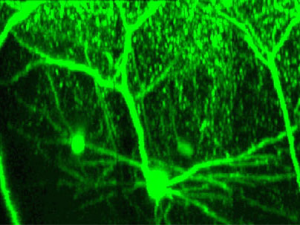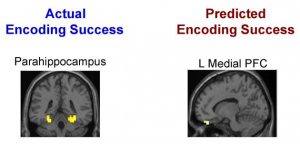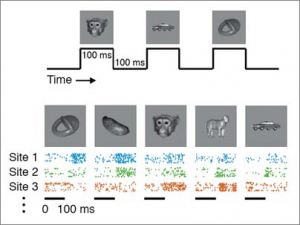Both LiveScience.com and New Scientist are reporting today that a team of Italian and German neuroscientists working in conjunction with mobile chip maker Infineon have created a “neuro-chip,” a hybrid microchip that interfaces living neurons with traditional silicon circuitry. In addition to providing new insights into the brain’s inner workings, the groundbreaking work could one …
Tag: neurobiology
Jan 06 2006
Astrocytes Can Independently Control Blood Flow
Astrocytes, also known as astroglia, are star-shaped cells in the brain whose function and importance has never been fully understood by neuroscientists. Once thought to be housekeeping cells under the control of neurons, LiveScience.com is reporting today that researchers have found that astrocytes can directly and independently perform the critical function of controlling blood flow …
Dec 28 2005
Neuron Growth Occurs in Adult Brains
Researchers from the Picower Institute for Learning and Memory at MIT have recently found that contrary to popular belief, neurons do grow in mature brains. It had been widely accepted that structural remodeling of neurons does not occur in adult brains, but the discovery that it does could lead to advances in treatments of spinal …
Dec 13 2005
Mice With Human Brain Cells
It was announced yesterday that in an effort to create better models for studying neurological disorders, a team of scientists from the Salk Institute led by Dr. Fred Gage have successfully bio-engineered mice to be born with a small percentage of human brain cells. The process involves injecting 2-week-old mouse embryos with roughly 100,000 human …
Dec 04 2005
Neurons That Tune Out Background Noise
LiveScience.com is reporting that researchers from the University of Washington have discovered neurons in the brainstems of rats whose sole function is to identify new sounds while ignoring ongoing and predictable background noises. The scientists believe these specialized neurons are present in all vertebrates, including humans in whom they probably play a significant role in …
Nov 28 2005
Predicting What You’ll Need to Remember
LiveScience.com is reporting that a new brain-imaging study performed by researchers at MIT has concluded that if you predict a memory will need to be recalled as you store that memory, you will in fact be able to remember it better later. In other words, people who make more accurate memory predictions are better learners. …
Nov 24 2005
A Thought Bouncer for Your Brain
Scientists from the University of Oregon have discovered that a person’s memory capacity is not just dependent on how much information their brain can store, but also on how well they are able to filter their thoughts to focus on what they are trying to remember. In other words, people with an effective “thought bouncer” …
Nov 13 2005
Meditation Thickens the Brain
Scientists have long known that meditation has the ability to permanently alter neural patterns, but researchers have recently discovered that the practice also causes parts of the brain to physically thicken. LiveScience.com has a summary of the study that was led by Sara Lazar, an assistant in psychology at Massachusetts General Hospital. The 20 participants …
Nov 08 2005
Women Get a Bigger Kick Out of Cartoons
It has long been perceived by scientists and non-scientists alike that women and men process and react to humor in different ways. Now researchers from the Center for Interdisciplinary Brain Sciences Research at Stanford University School of Medicine have neurological evidence to back that theory up. NewScientist.com has a summary of their study that is …
Nov 05 2005
Scientists Decipher Visual Neural Output
MIT has published a news release about how neuroscientists in the McGovern Institute for Brain Research have recently made significant advances in their attempts to learn how the inferotemporal (IT) cortex identifies and categorizes visual data. The ability to visually recognize objects, while usually taken for granted because it happens quickly, automatically, and subconsciously, is …
- 1
- 2




